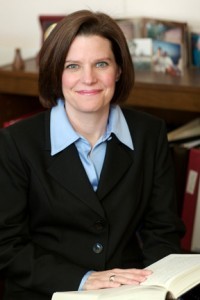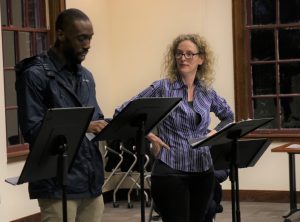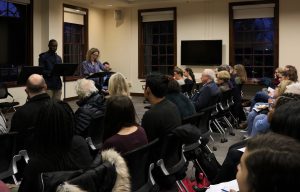 Are you interested in pursuing a career in media law or policy? Are you worried that you won’t be able to take that plum summer job in Atlanta, Los Angeles, New York, or Washington, because it’s just too expensive to live there. Well, the Center for Media Law and Policy is here to help. For the ninth year in a row, the Center will be providing grants to UNC law and graduate students who have a summer job in the field of media law or media policy.
Are you interested in pursuing a career in media law or policy? Are you worried that you won’t be able to take that plum summer job in Atlanta, Los Angeles, New York, or Washington, because it’s just too expensive to live there. Well, the Center for Media Law and Policy is here to help. For the ninth year in a row, the Center will be providing grants to UNC law and graduate students who have a summer job in the field of media law or media policy.
The Center’s summer grants program provides funds to UNC law and graduate students taking unpaid or low-paying jobs in the fields of media law or media policy. In past years, UNC students have received a summer grant to support their work at a wide range of organizations, including the Federal Communications Commission, Federal Trade Commission, National Public Radio, Electronic Frontier Foundation, Foundation for Individual Rights in Education (FIRE), Future of Privacy Forum, Student Press Law Center, Broadway Video Group, Screen Media Ventures, American Civil Liberties Union of Northern California, and Berkman Klein Center for Internet & Society.
Wait, you don’t have a summer job yet?! Head over to our media law and policy Jobs Center, where you will find dozens of summer (and post-graduate) employment opportunities. You can easily find the perfect job for you by using our advanced search feature to search by location, keyword, or practice area. Also, try browsing by job type or category for a more expansive look at the jobs listed. Still not sure what you want to do for the summer? You can read about the summer experiences of your fellow students on the Center’s blog.
Requirements and Information on How to Apply for a Summer Grant
You must be a UNC law student or graduate student to apply. You will need to download the application form and send it directly to us at medialaw [at] unc.edu along with the other supporting material described below. Please put “Summer Grant Application” in the subject. The deadline for applying for a summer grant is April 24, 2020.
Law students who applied through the law school’s Summer Public Interest Grant Program are also eligible for a Center grant. You do not need to apply to the Center separately. Simply check the box on the general application for “Media Law or Policy” under the heading “Substantive Areas Your Summer Employment Will Involve” and you will be automatically considered for Center funds in addition to the law school grant.
Applications will be evaluated based on (a) your demonstrated commitment to working in the areas of media law or policy and (b) the quality of your essays (each essay should not be more than 500 words).
Required documents include:
- Resume (without grade information)
- Offer letter from your employer
- Essays (no more than 500 words each) *
* Essay questions:
- Essay #1: Describe your work responsibilities and how they relate to media law or media policy.
- Essay #2: Describe your commitment to public service. How have your past interests and work experiences contributed to your proposed summer internship responsibilities?
- Essay #3: How do you see this summer work experience contributing to your long-term career goals?
Be sure to check out these Tips for Writing a Strong Grant Application. You will be notified of a decision in April.





